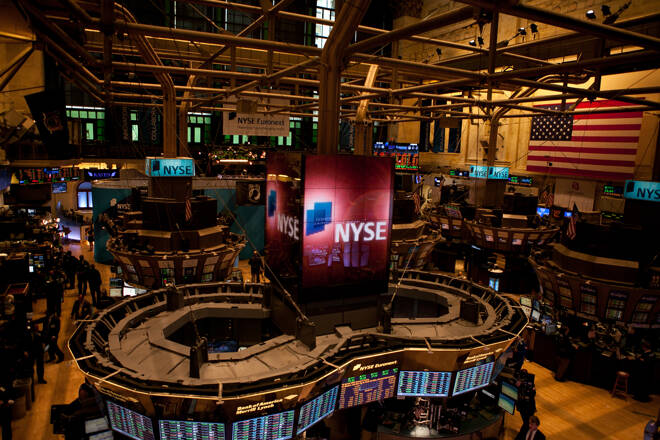Advertisement
Advertisement
US Stock Market Overview – Stocks Slide Following Soft US Payroll Report
By:
US stock prices whipsawed between positive and negative territory for most of the session with the Dow underperforming and all three major indices closing
US stock prices whipsawed between positive and negative territory for most of the session with the Dow underperforming and all three major indices closing in the red. Both Facebook and Microsoft had technical outside days which points to a potential round of profit-taking. The Dow Industrials hit 29K for the first time in history but turned lower into the close. Most sectors in the S&P 500 were lower, led down by Financials, while real-estate bucked the trend.
Non-farm payrolls were released by the Department of Labor, coming in softer than expected. US yields moved lower, and the dollar eased, which paved the way for higher gold prices. Oil prices were lower, unable to gain traction following whipsaw price action earlier in the week. Volatility remained subdued which means that investors remain confident.
Job Growth is Softer than Expected
The US labor department reported on Friday that US Nonfarm payrolls increased 145k, less than the 160k expected, while the unemployment rate held steady at 3.5%. Revisions to the October and November numbers brought those two months down by 14,000 as well.
Average hourly earnings rose by just 2.9%, below the 3.1% projection. December marked the first time that wage gains were below 3% July 2018. Average hourly earnings increased 3 cents last month to $28.32. The labor force participation rate held steady at 63.2% as the workforce rose by 209,000 to 164.6 million and the job pool fell by 48,000 to 95.6 million.
The total employment level rose to 158.8 million, also a fresh high. However, the unemployment rate for African Americans rose 0.3 percentage points to 5.9%. There were still 477,000 open positions as of October, down less than 5% from the year-ago level, according to the Labor Department.
Volatility is Priced Low
There is still a geopolitical risk and while the Trump administration will use sanctions, Iran is likely to increase terrorism., The Trump administration expanded its sanctions campaign against Iran. The US secretaries of state and treasury signaled the administration is choosing to wage more economic war rather than use military force.
About the Author
David Beckerauthor
David Becker focuses his attention on various consulting and portfolio management activities at Fortuity LLC, where he currently provides oversight for a multimillion-dollar portfolio consisting of commodities, debt, equities, real estate, and more.
Advertisement
